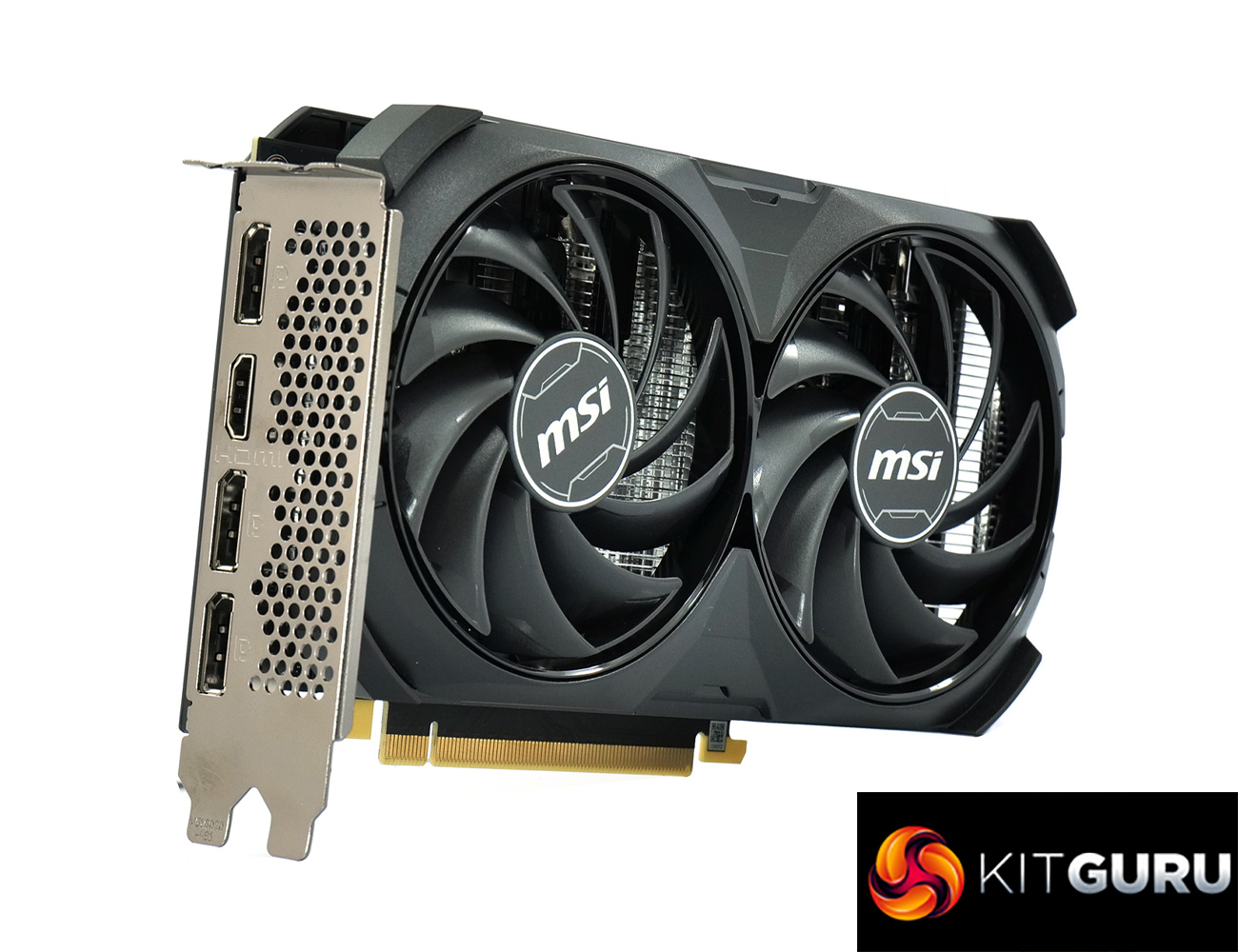Despite originally being slated for release in July, Nvidia brought the launch forward for the RTX 4060, with retail availability from tomorrow, June 29th. Priced at £289/$299, while I don't think it's as awful as the RTX 4060 Ti, it's not exactly good either, and certainly nothing close to exciting.
That starts with the raw performance. While the RTX 4060 delivers decent enough frame rates across the board for 1080p Ultra settings, over the 12 games we tested it's just 17% faster on average when compared to its predecessor, the RTX 3060 12GB. That puts it dead level with the RX 7600, while it's 16% and 20% slower than the RX 6700 XT and RTX 4060 Ti, respectively.
As with the RTX 4060 Ti however, relative performance drops off as we increase the resolution to 1440p. You can still get away with gaming at this resolution, though more demanding titles including The Last of Us Part 1 and A Plague Tale: Requiem saw average frame rates drop into the 30s. Against the RTX 3060 12GB however, the 4060 is just 14% faster on average, while it's 17% slower than the RX 6700 XT.
Perhaps more disappointing is the comparison against the RTX 2060. On average, the RTX 4060 is just 39% faster at 1080p and 43% faster at 1440p. Both are highly underwhelming numbers considering we're now four and a half years, and two GPU generations, on from the launch of that Turing GPU back in January 2019. To put that into perspective, the RTX 4090 saw a bigger performance jump in a single generation when compared to the RTX 3090, but the generational gains are nowhere near as compelling in this market segment.
Ray tracing performance has advanced at a slightly faster rate though, with the RTX 4060 now 63% faster on average at 1080p when compared to the RTX 2060. That's still just a 19% advantage over the RTX 3060 though, and while most games run well enough, the like of Hitman 3 and Cyberpunk 2077 aren't playable at native resolution when ray tracing is cranked to the max.
DLSS 2 remains an impressive technology and does add value here, as does DLSS 3 Frame Generation. It's still very early days for the latter technology though, with support for just 37 games currently, according to Nvidia's own website. As I mentioned in my RTX 4060 Ti review, DLSS 3 is a ‘nice to have feature' but there are still so many games that don't support it, while the added latency also means it's not particularly useful in competitive multiplayer titles – which is almost all of the most played games on Steam. In other words, it's not enough to justify circa 17% gains over the RTX 3060 by relying on DLSS 3.
Despite all that, I do think the RTX 4060 isn't quite as bad as the RTX 4060 Ti. For one thing, it's 26% cheaper but only 20% slower, so that results in a small improvement to cost per frame. Primarily though, the fact the RTX 4060 only ships with 8GB VRAM is easier to forgive at the £289 price point, as end users would be more willing to accept image quality compromises with the RTX 4060 than you would with the £389 RTX 4060 Ti.
That being said, in no way, shape or form do I think 8GB VRAM is a good amount for the RTX 4060. My RTX 4060 Ti video offered numerous examples where 8GB VRAM is clearly a limiting factor, all of which apply to the RTX 4060, and we also saw a couple more in this review with the Cyberpunk 2077 and Spider-Man Remastered results. Again, if all of this is happening today, it does not bode well for things in one, two, three years down the line.
The 8GB framebuffer situation is also made worse for the RTX 4060 when we consider the fact that its predecessor, the RTX 3060, obviously launched with 12GB VRAM over two years ago. Of course I understand from a technical perspective that 12GB VRAM is not a viable option for the RTX 4060 due to its 128-bit memory interface, instead it would need to have either 8GB or 16GB. The reality is, however, that neither of those are good options for this class of hardware, whereas 12GB VRAM would suit this GPU perfectly – something we had with the last generation xx60 SKU, but have since regressed on, and that's never a good look.
If you're just wondering about who has the upper hand between the AMD RX 7600 and the RTX 4060, I'd say Nvidia has the stronger – or perhaps more accurately, the less weak option. Yes, the RX 7600 offers equivalent rasterisation performance for £40 less, and for some that might be all that matters. However, the 4060 is far superior when it comes to ray tracing, while also offering support for DLSS 2, DLSS 3 and significantly better energy efficiency.
Neither are impressive though, so if you're looking for a new graphics card, I wouldn't position the RX 7600 as the main contender to the RTX 4060. The RX 6600 at £180 is more of a threat in my view, coming in over £100 cheaper while still offering decent gaming performance, and of course the 8GB framebuffer stings a heck of a lot less at that price point. Or you could go the other way and look at an RX 6700 XT for £340, a GPU that's 18-20% faster while also offering 50% more VRAM, giving you more longevity at Ultra settings. The main drawback to that RDNA 2 GPU is power consumption however, as it pulls almost twice the power as the RTX 4060.
Ultimately, the Nvidia RTX 4060 is another very underwhelming launch. Real generational gains for this class of hardware just don’t seem to be a thing any more, and while it is slightly more palatable than the RTX 4060 Ti, it's still very hard to recommend outright, at least not without a reasonable price cut.
Discuss on our Facebook page HERE.
Pros
- Decent gaming performance.
- Very low power draw.
- MSI Ventus 2X Black model runs cool and quiet.
- DLSS 3 is a useful feature in the games that support it.
Cons
- Disappointing performance improvement versus the RTX 3060 and even RTX 2060.
- 8GB VRAM, while more forgivable at this price point, is still a clear limitation for gaming today and into the future.
- Less VRAM than its direct predecessor.
- Very small improvement in cost per frame versus 30-series.
- 128-bit memory interface limits performance above 1080p.
- A touch less efficient than RTX 4060 Ti.
KitGuru says: It's not as awful as the RTX 4060 Ti, but it's not exactly inspiring either.
 KitGuru KitGuru.net – Tech News | Hardware News | Hardware Reviews | IOS | Mobile | Gaming | Graphics Cards
KitGuru KitGuru.net – Tech News | Hardware News | Hardware Reviews | IOS | Mobile | Gaming | Graphics Cards




